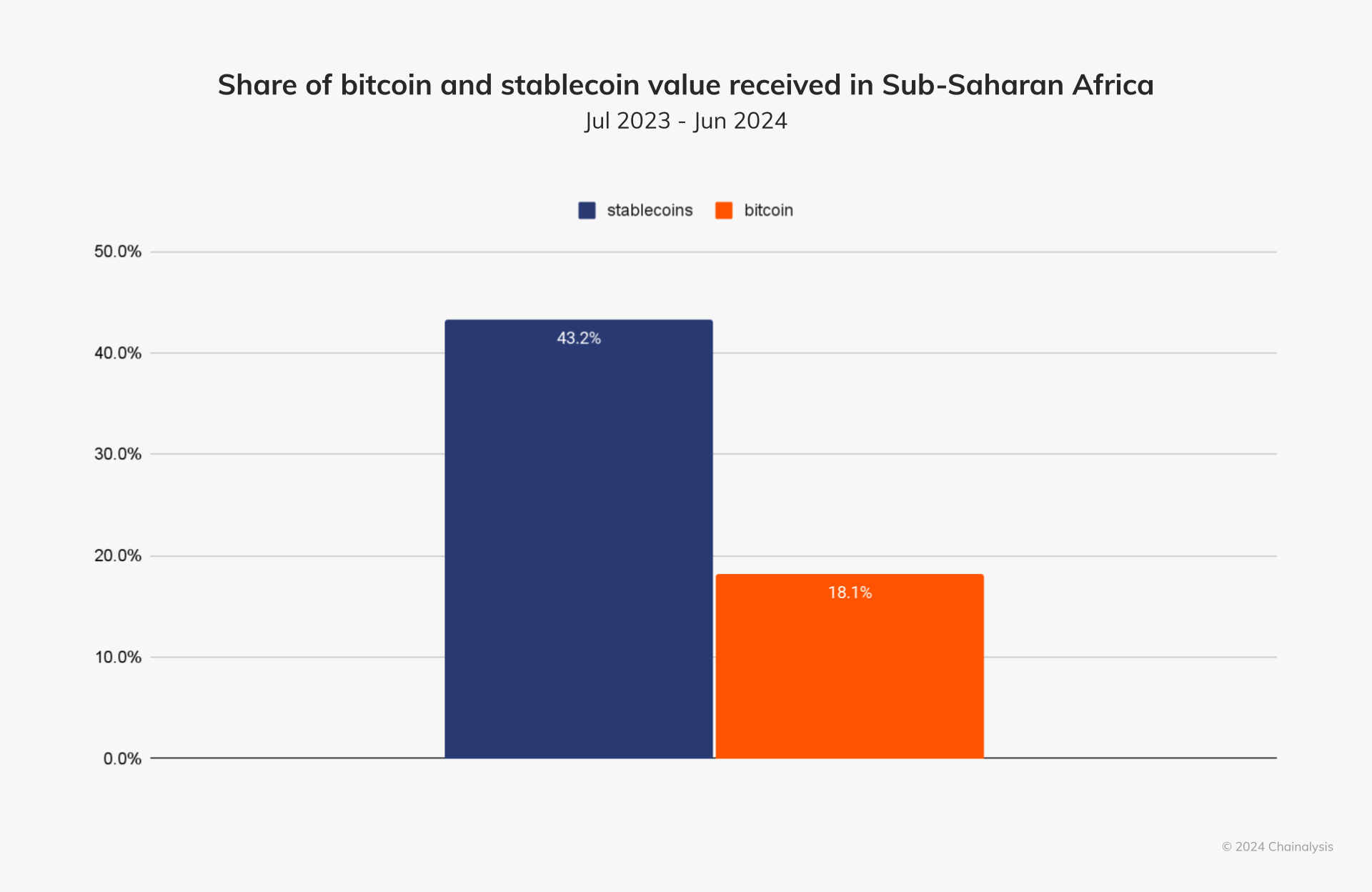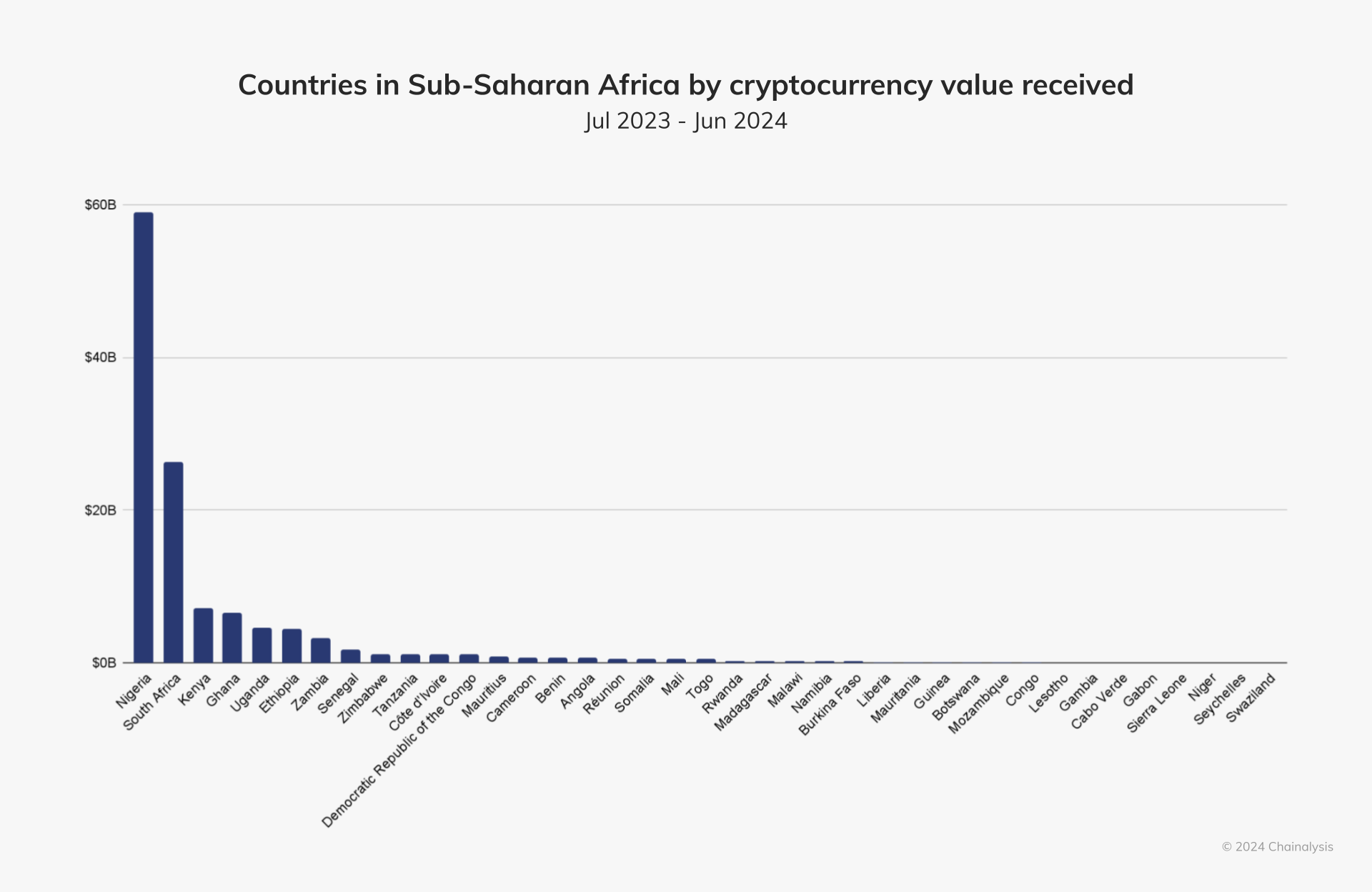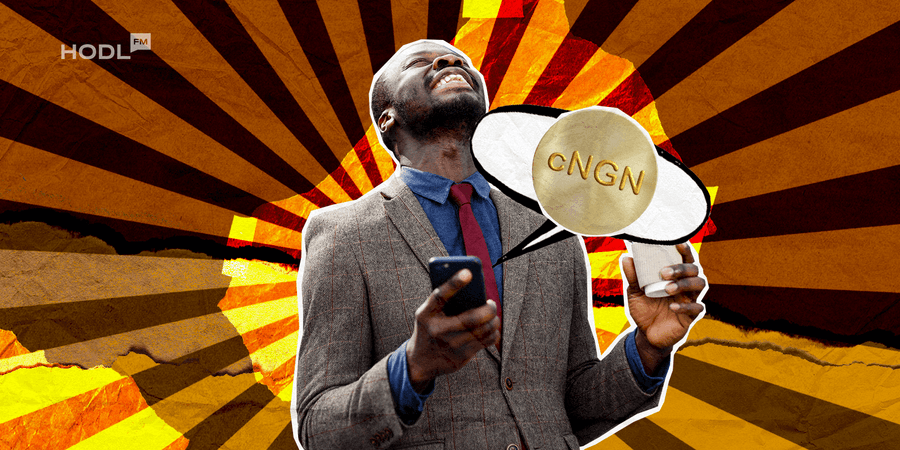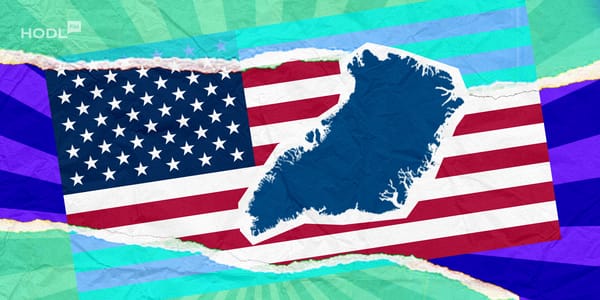As Nigeria grapples with a sharp depreciation in its currency, Bitcoin has reached new heights against the Nigerian Naira. The digital currency has surged close to its global all-time high (ATH) of $73,737 in certain Nigerian peer-to-peer (P2P) exchanges, reaching a ₦121 million, according to Monierate data. The rise comes amid a downturn for the Naira, which has experienced a record low against the U.S. dollar due to dwindling dollar liquidity in the country.
Read More from HODL FM: eNaira Gets a Tech Boost: Nigerian Central Bank Embraces the Future of Money
The Naira's Freefall
According to Forbes, despite the attempts to stabilize the Naira through foreign exchange market reforms, such as the introduction of a free-floating currency policy, the Naira’s value has struggled to find solid footing. A report from First Securities Discount House (FSDH) Merchant Bank Ltd highlights that while increased interest rates and forex interventions by the Central Bank of Nigeria (CBN) could help, the currency’s challenges persist.
Bitcoin adoption in Africa is setting all-time highs every week now.
— Kevin Rooke (@kerooke) June 30, 2020
In just 3 months, P2P volumes are up:
125% in Nigeria
199% in Kenya
194% in South Africa
257% in Ghana
Combined, these four currencies are now exchanging over $15M USD/week of Bitcoin. pic.twitter.com/jZfFFsXeTR
Currently, the Naira is trading at ₦1,711.77 to the dollar, a significant slide that Bloomberg reports stems from a low liquidity pool of just $81 million—marking a steep 72% decline and setting a new record low for the currency.
Adding to the complexity, a recent World Bank report has marked the Naira among the worst-performing Sub-Saharan African currencies of 2024, alongside the Ethiopian Birr and South Sudanese Pound. Major factors contributing to the Naira’s 43% year-to-date depreciation include skyrocketing demand for U.S. dollars, a shortfall in dollar supply, and delays from the CBN in releasing forex, according to the report.
Nigeria’s Crypto Frenzy Hits $59B Despite “The Clampdown”
— Mario Nawfal’s Roundtable (@RoundtableSpace) October 28, 2024
Nigerians funneled $59 billion through digital channels from mid-2023 to mid-2024, locking in the country’s #2 spot in global crypto adoption, according to Chainalysis.
With Binance, KuCoin, and OKX all on the chopping… pic.twitter.com/WJLbBm8OeO
Bitcoin’s Rising Appeal and Growing Stablecoin Demand
While the Naira slides, Bitcoin’s value has steadily climbed, building on a notable September rally. The cryptocurrency has seen a 66% appreciation this year, with a 12% gain over the last six months alone. Market factors, including anticipation of the upcoming U.S. presidential election, where a Trump victory could be favorable for Bitcoin adoption, have added momentum to the crypto’s rise.
In Nigeria, the allure of Bitcoin and other cryptocurrencies goes beyond speculative trading. With inflation at alarming levels and the Naira consistently losing ground, Bitcoin has become a haven for many Nigerians. The stark contrast between the devaluing Naira and Bitcoin’s increasing worth has only amplified Bitcoin's appeal as a store of value and a hedge against local currency instability.
Stablecoins like Tether (USDT) have also gained substantial traction in Nigeria, emerging as a preferred alternative to the Naira. According to Chainalysis, stablecoins now account for 43% of the crypto transaction volume in Sub-Saharan Africa, enabling Nigerians to access the dollar with ease amid tightening liquidity. USDT, in particular, has become an essential tool for international trade, savings, and instant cross-border transactions.

Looking Ahead: Bitcoin’s Role in Nigeria’s Financial Landscape
With the Naira’s value on uncertain ground, many Nigerians are turning to Bitcoin and USDT as practical solutions to currency volatility. As we approach 2025, this trend is expected to persist. Cryptocurrencies offer Nigerians affordable access to U.S. dollar equivalents through USDT and a secure method to store wealth, making it easier to manage financial transactions beyond Nigeria’s borders.

In addition to these financial shifts, the Nigerian government is taking significant steps to enhance its technological landscape. Recently, it received a large grant of N2.8 billion (around $1.7 million) from Google to develop skills in artificial intelligence (AI) across the country.
Dr. Bosun Tijani, the Minister of Communications, Innovations, and Digital Economy, highlighted this funding as a pivotal move toward positioning Nigeria as a leader in AI within Africa. The grant will support various programs aimed at training Nigerians in AI and data science, aligning with the government's “Three Million Technical Talents” initiative, which aims to train 20,000 individuals in these fields over the next four years.

Disclaimer: All materials on this site are for informational purposes only. None of the material should be interpreted as investment advice. Please note that despite the nature of much of the material created and hosted on this website, HODL FM is not a financial reference resource and the opinions of authors and other contributors are their own and should not be taken as financial advice. If you require advice of this sort, HODL FM strongly recommends contacting a qualified industry professional.




